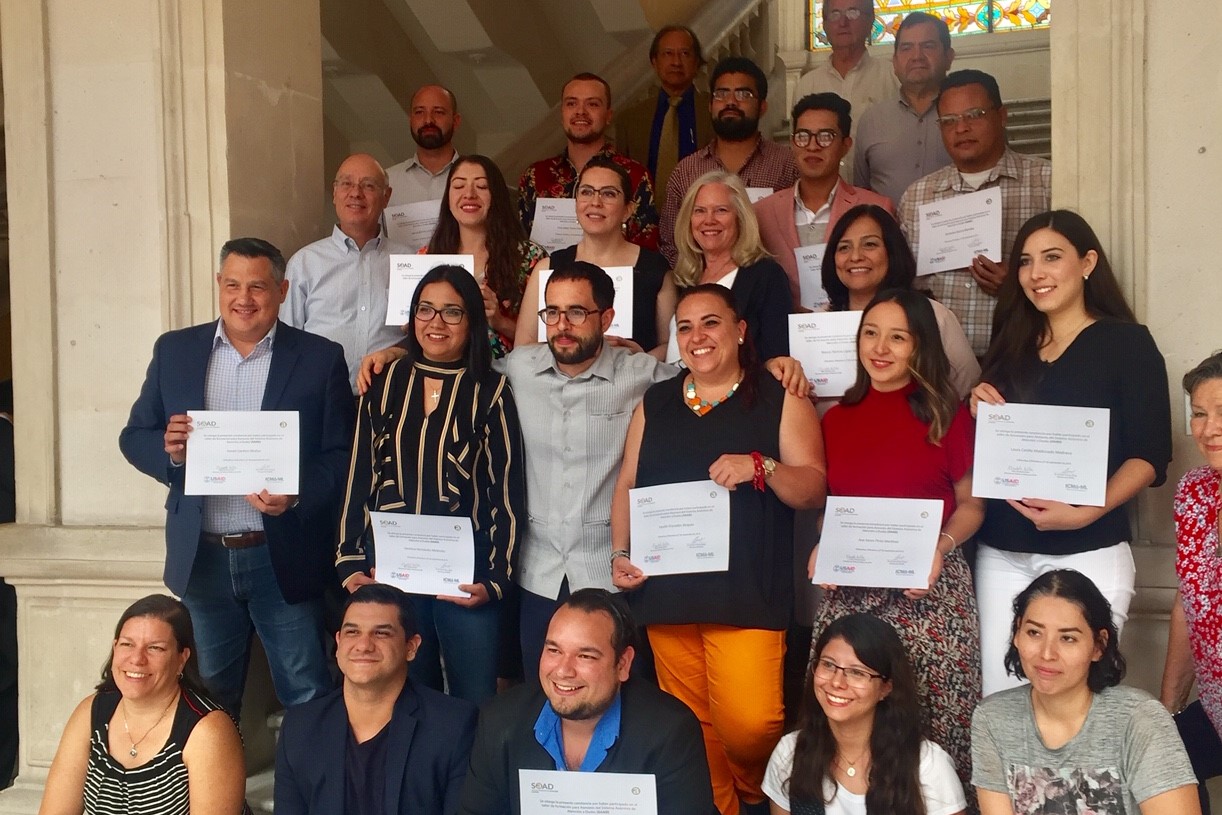
What does it take to build an ethical culture in government? More than 200 individuals participated in a public ethics forum in Chihuahua, Mexico, September 26-27, to learn what they can do to combat corruption and promote ethical behavior. The U.S. Agency for International Development (USAID) provided support for the forum.
To minimize corruption, organizations need good controls and oversight, explained Octavio Chavez, director, ICMA-Mexico. “But the primary focus should be on preventing corrupt acts and promoting a high standard of conduct.”
Real World Ethical Challenges
Oscar Rodriguez talked about the real-world ethical challenges he has faced over his career as a city manager and municipal finance expert. When he refused to go along and award a high-cost contract to a vendor with personal ties to a department director, he thought he might be fired. One city employee called him a “dead man walking” after the mayor summoned him to his office. And yet, he was not fired, nor was the contract awarded to the questionable vendor.
Drawing on her experience as an ICMA ethics advisor and chair of the Montgomery County, Maryland, Ethics Commission, Elizabeth Kellar described conflicts of interest that are common in government, such as seeking personal gain or doing favors for friends and family rather than serving the public interest.
The Role of Citizens in Promoting Ethical Conduct
“Citizens play an important role in upholding high ethical standards,” Kellar said. The citizens serving on the Montgomery County Ethics Commission had to decide whether to grant an exception to the county's ethics law so a popular police chief could accept money for speaking and writing about his experience during three weeks of sniper attacks in the Washington, D.C., area in 2002.
The commission denied his request for a waiver, explaining that it would not be fair for a department director to accept compensation related to his official duties because it had already issued an opinion advising other police officials that the county’s ethics law did not permit them to accept speaking fees to discuss their role in the sniper attacks.
Training for Ethics Advisors
Following the keynote presentations, some 20 participants met with the ICMA leadership team to learn how to be an ethics advisor using the ICMA-Mexico online ethics education tool. The tool, created with support from USAID, allows government employees and officials to ask for ethics advice anonymously. The system administrator assigns the question to an ethics advisor who responds without knowing who asked the question.
The system is structured so that individuals seeking ethics advice can have an online conversation with an ethics advisor. It is up to the individual to decide what action to take, if any, including talking about the concern with a superior or filing a formal ethics complaint anonymously.
Over time, the ethics questions will be analyzed so that common issues can be addressed through training or ethics education.
New, Reduced Membership Dues
A new, reduced dues rate is available for CAOs/ACAOs, along with additional discounts for those in smaller communities, has been implemented. Learn more and be sure to join or renew today!
